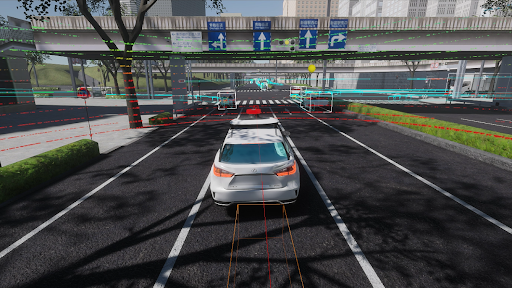How was this content?
Autonomous driving startup TIER IV uses AWS to change the future of mobility

To successfully disrupt an industry, startups must look to push boundaries, to tackle problems using the latest technology, and to prove what’s possible.
In the automotive industry, TIER IV is an innovative and disruptive startup that is transforming the vehicle production process and the future of mobility. Founded in 2015 by Shinpei Kato in Japan, TIER IV builds platforms based on open source software—platforms they manage using AWS—that their partners use for building autonomous vehicles.
“We want to reimagine intelligent vehicles,” says Shinpei. “I respect the traditional structure of how vehicles have been mass produced, but it has not changed at all for a hundred years.”
The open-source software that TIER IV uses comes from the Autoware Foundation (AWF), a nonprofit that Shinpei co-founded in 2018. Using this software has been integral to the company’s success. It allows smaller startups like TIER IV to compete with bigger companies that have seemingly infinite resources. Open-source software benefits TIER IV’s customers as well, reducing the cost and delivery time of the product without compromising quality. “We manage the operations of our open-source product using AWS,” says Shinpei.

Shinpei maintains that open-source software creates possibilities for innovation in the field of autonomous vehicles because a wider range of people can experiment with it. “The sky is the limit and anyone can participate,” says Shinpei. “That’s the spirit of open source.”
Building on AWS
Given the benefits of the AWS Activate program for startups, Shinpei says the choice to use AWS for TIER IV’s cloud infrastructure was an easy one. TIER IV has also benefited from AWS’s robust technological offerings, as well as its extensive support network of experts and partners. “There are other kinds of private cloud infrastructures from other companies,” he says. “But if you look at the capabilities of engineers, many of them are more familiar with AWS’s Application Programming Interface (API).” It was easy for the TIER IV team to find engineers who were familiar with AWS’s technology and able to leverage it to its full potential.
The wide range of AWS solutions—from the Internet of Things (IoT) and storage to more compute intensive infrastructure—has helped TIER IV build and scale. The company uses AWS IoT solutions for data collection of vehicles in motion so that they can build remote monitoring and fleet management systems. The streaming data is ingested into durable Amazon Simple Storage Service (Amazon S3) to be consumed by multiple services.
Scalable machine learning instances are key
AWS also helped the TIER IV team to optimize their cloud architecture: “Without support from AWS Startups team for architecture design, we couldn’t have launched our product,” says Shinpei, specifically citing AWS’s help with fleet management, remote monitoring systems, and autonomous driving simulations. Creating simulations with AWS compute services such as Amazon Elastic Kubernetes Service (EKS) allows them to test vital components of autonomous vehicles without operating real vehicles on public roads.

“Simulations can reduce the risk of accidents and reduce the cost of engineering,” says Shinpei. “AWS is helping us develop a high-quality, low-cost, and high-class delivery product.”
When it comes to the role of machine learning, Shinpei believes that AI is necessary for the future of autonomous vehicles—and working with AWS to leverage Amazon SageMaker is key. “AWS is a one-stop platform for us to build intelligent autonomous vehicles,” he explains.
“AWS scalability is important for us. We can run thousands of instances of machine learning processes and simulation processes in parallel,” says Shinpei. “This capability is key for us to build or mass produce autonomous vehicles in the future.”
Driving towards a successful future for autonomous vehicles
The AWS Partner Programs has also been a game changer for TIER IV. One of the perks of participating in AWS Activate was undergoing an AWS Foundational Technical Review (FTR), a process that validates that AWS Partner solutions are following AWS best practices and identifies technical risks in their solutions. “We went through the technology review and, thanks to significant support from AWS members, finally succeeded in being certified by AWS,” says Shinpei. Undergoing this process resulted in a “Reviewed by AWS” solutions badge, which will help TIER IV garner funding and makes them validated in the AWS Partner Network and enables co-selling and co-marketing initiatives with AWS sales teams.
Looking forward, Shinpei says that AWS’s infrastructure and expertise will become more integral to TIER IV’s ability to scale and innovate.
“We will continue to build the future of mobility,” he says.
Ready to begin your startup journey? Join AWS Activate to build and scale your startup with the right resources at the right time.
Learn more about how startups are using AIML solutions on AWS:

Megan Crowley
Megan Crowley is a Senior Technical Writer on the Startup Content Team at AWS. With an earlier career as a high school English teacher, she is driven by a relentless enthusiasm for contributing to content that is equal parts educational and inspirational. Sharing startups’ stories with the world is the most rewarding part of her role at AWS. In her spare time, Megan can be found woodworking, in the garden, and at antique markets.

Yoshitaka Haribara
Yoshitaka Haribara is a Senior Solutions Architect (SA) on the Startup Team at AWS, working as the Account SA for TIER IV. After getting his PhD in Mathematical Informatics from the Graduate School of Information Science and Technology at the University of Tokyo, he joined AWS to help startup customers to leverage AWS cloud with his specialty in machine learning and quantum technologies and expand their business globally.

Shinpei Kato
Shinpei Kato is the CEO, CTO, and founder of TIER IV. He is also the founder and chairman of the Autoware Foundation, as well as a Project Associate Professor at the Graduate School of Information Science and Technology at the University of Tokyo. Shinpei was a postdoctoral scholar at Keio University, the University of Tokyo, Carnegie Mellon University, and University of California, Santa Cruz. He was an associate professor at the Graduate School of Information Science, Nagoya University from 2012 to 2016. His expertise includes computer architectures and operating systems for embedded and real-time systems as well as parallel and distributed systems.
How was this content?